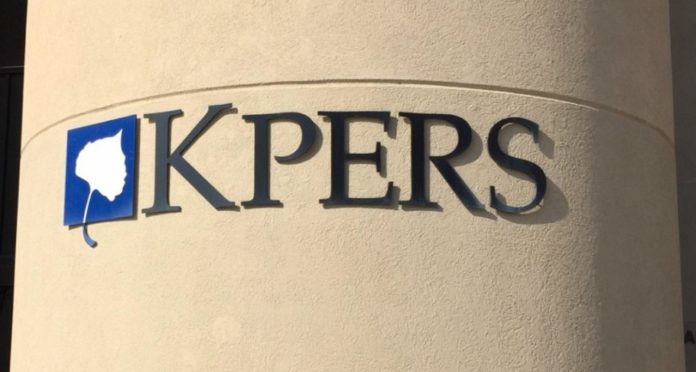The Kansas House on Wednesday approved a bill requiring the state to divest from “countries of concern” within two years, including the People’s Republic of China, Cuba, Iran, North Korea, Russia and Venezuela.
The House voted 85-38 to approve a bill requiring the state to withdraw 50% of any assets in “countries of concern” by July 1, 2025. The state must divest all assets in those countries by 2026. The bill now awaits action in the Senate.
“I am opposed to our state engaging in business with nations such as Iran, where women are subjected to stoning merely for being seen in public with a male who is not a relative; in Russia, where political opponents are imprisoned or assassinated; and in China, where ethnic minorities like the Uighur population are currently being enslaved,” Republican state Rep. Nick Hoheisel said.
“We’re better than this.”
The bill was one of three addressing the state’s relationship with countries that present threats to the United States.
Also Wednesday, the House passed a bill banning foreign interests from “countries of concern” from owning or acquiring land within 150 miles of a military base located in Kansas or an adjacent state.
The House also passed a bill that bars government agencies in Kansas from using drones made with components originating from a foreign adversary. The drone bill passed on an 83-40 vote.
“These bills begin the process of safeguarding our state and the national security assets we hold, while staying narrowly tailored to allow the American dream to thrive right here in Kansas,” House Majority Leader Chris Croft said after the bills passed.
The executive director of the Kansas Public Employee Retirement System testified against the divestiture legislation because it limited the agency’s flexibility to make investment decisions for funding benefits.
Alan Conroy said that while he believed the bill was workable, he added there was concern about writing a divestiture requirement into law.
He said a two-year path to divestiture gave the agency time to respond to the legislation.
But adding legal restrictions to investment decisions, Conroy said, would impede the ability of the KPERS board to make investment decisions and manage risk.
Placing those constraints on the board, he said, could negatively affect the rate of return, and that could eventually require the state and local governments to increase their contributions to the retirement plan.
Hoheisel, chair of the House pensions committee, said he respected the position taken by the retirement system.
But he added that the state did something similar in the past when it banned investments in companies that boycotted Israel.
“I think their concerns are legitimate,” Hoheisel said after the first hearing on the bill.
“This is a policy question. Is it proper to invest our state funds in these countries of concern, not only for national security issues but also human rights issues?”
The retirement system estimated that it would incur trading costs of $680,000 over the two-year period of divestiture.
KPERS notes that the bill would not be expected to affect the long-term investment return assumptions currently used by the actuary.
If a “country of concern” imposes restrictions delaying divestment beyond the scheduled dates, complete divestment must occur within one year after the restrictions are lifted.
The bill also would bar the state from acquiring securities from “countries of concern” and making investments or deposits in banks based in those countries.
The “countries of concern” listed in the bill could only be changed by the Legislature.
Of the “countries of concern” named in the bill, the KPERS Trust Fund only has holdings
in China, including Hong Kong, Conroy said.
As of Jan. 31, KPERS had $292 million in holdings China, of which about $257 million was in public market holdings subject to the divest requirements in the bill, he said.
The system currently has 13 holdings that are subject to divestment under the bill.
Overall, the KPERS trust fund is valued at about $26.3 billion, meaning that China investments make up less than 1% of its holdings.
In the last year, the KPERS Board of Trustees approved changes to the investment
portfolio that reduced the retirement system’s exposure to China, Conroy said.
Those changes were driven by economic and portfolio management considerations and were made on the advice of investment consultants and investment staff, he said.
A year ago, the state retirement system had about $611 million invested in assets in China.













